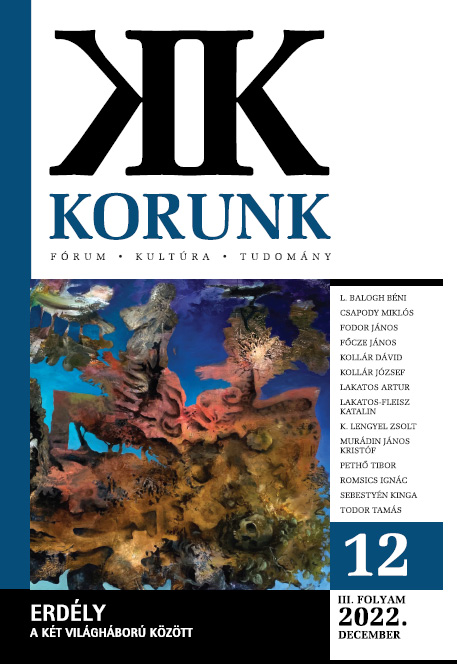„Örömmámor és kétségbeesés.” Az erdélyi magyarság és a második bécsi döntés
“Exultation and Despair”: Hungarians in Transylvania and the Second Vienna Award
Author(s): Béni L. BaloghSubject(s): Interwar Period (1920 - 1939), WW II and following years (1940 - 1949)
Published by: Korunk Baráti Társaság
Keywords: 30 August 1940; Second Vienna Award; Transylvania; Hungary
Summary/Abstract: For about four years, the new Hungarian-Romanian border drawn by the Second Vienna Award of 30 August 1940 divided Transylvania and the Hungarians living there. The Hungarians of Northern Transylvania, who had been returned to Hungary, became part of the majority nation again, and the benefits of this soon became apparent. The most visible progress has been in the areas of mother tongue use, education, and culture. It was mainly due to this fact that, despite the severe economic difficulties, social conflicts and the not insignificant blood sacrifices of the war, the Hungarians of Northern Transylvania emerged from the turmoil of the Second World War and faced the new change of state sovereignty after 23 August 1944 with a strengthened national consciousness. The Hungarians of Southern Transylvania, however, who were stranded in Romania, experienced the arrival of a new minority form of existence as a blow similar to the catastrophe of Trianon. Over the next four years, their situation deteriorated and they suffered severe economic, social, cultural, and demographic losses.
Journal: Korunk
- Issue Year: 2022
- Issue No: 12
- Page Range: 41-52
- Page Count: 12
- Language: Hungarian

